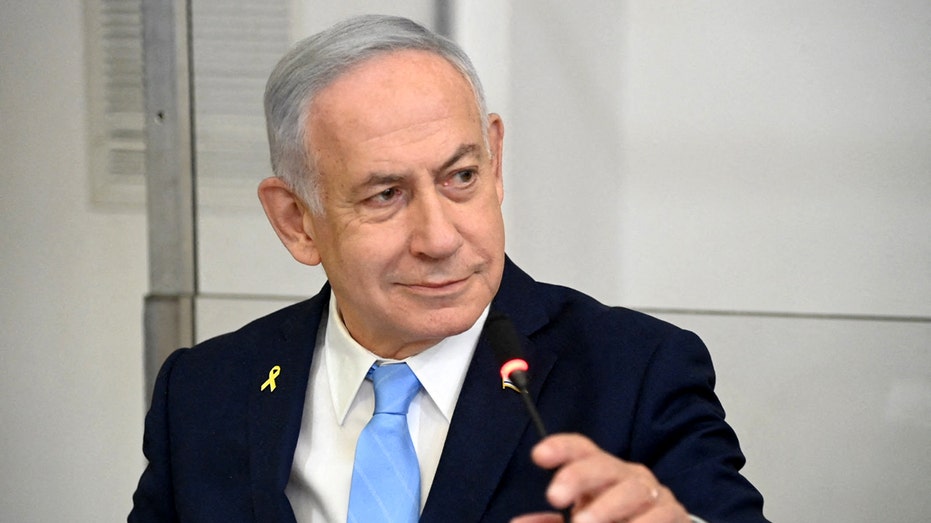URGENT UPDATE: Israeli Prime Minister Benjamin Netanyahu has issued a striking message to the people of Iran, promising assistance in alleviating their ongoing water crisis, but with a major caveat: the Iranian regime must be overthrown. This bold statement comes as Iran grapples with a severe water shortage, with experts warning that the situation could worsen as soon as August 2025.
In a video address released today, Netanyahu emphasized, “The thirst for water in Iran is only matched by the thirst for freedom.” His remarks follow a stark warning from Iranian President Masoud Pezeshkian, who highlighted the imminent dangers of water shortages due to mismanagement and excessive consumption. The Amir Kabir Dam, a crucial water source, is currently facing critical levels.
Netanyahu’s message is not just rhetoric. He stated, “The moment your country is free, Israel’s top water experts will flood into every Iranian city bringing cutting-edge technology and know-how.” This significant offer to provide advanced water recycling and desalination solutions underscores the urgency of the humanitarian crisis facing the Iranian populace.
The Iranian regime has faced criticism for its handling of the water crisis, with reports indicating that over 21,000 people were arrested during recent unrest related to resource shortages. Analysts suggest that Netanyahu’s appeal is a strategic move to link political change in Iran to direct benefits for its citizens, thereby encouraging resistance against the current leadership.
Iran expert Lisa Daftari remarked, “This is a clear policy signal wrapped in humanitarian aid,” highlighting that the Israeli Prime Minister’s message connects the dots between regime change and a tangible improvement in daily life for Iranians.
As tensions escalate following a brief conflict in June 2025, during which Israel targeted Iran’s nuclear facilities, the Iranian government has intensified its crackdown on dissent. Despite the regime’s efforts, there have been no credible reports of mass protests or attempts to overthrow the government since the arrests.
Iranian exiled leader Reza Pahlavi has also condemned the regime’s negligence, stating, “This regime has driven Iran’s water, land, air… to the edge of destruction.” His remarks echo the frustrations of many Iranians suffering from inadequate access to clean water and basic utilities.
As the situation develops, the international community watches closely. Netanyahu’s conditional offer presents a unique intersection of humanitarian aid and political strategy, potentially reshaping the future of Iran-Israel relations.
Observers are now left to ponder: Will this call to action resonate with the Iranian people, prompting a shift in the political landscape? The next few weeks could prove pivotal in determining whether Netanyahu’s outreach translates into tangible change for Iran’s water crisis and its broader political landscape.
Stay tuned for further updates as this story unfolds, and watch for the international response to this urgent humanitarian appeal.
